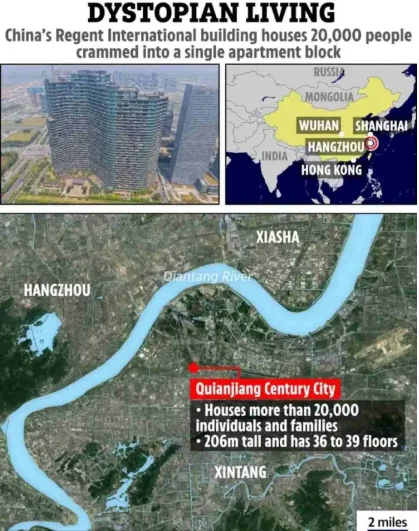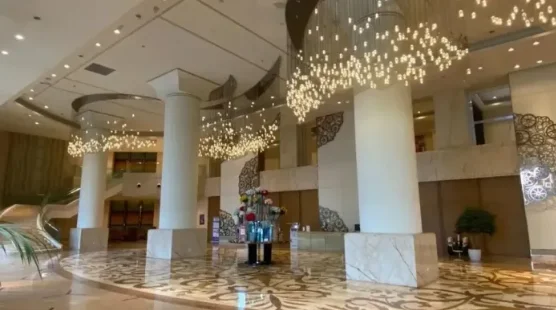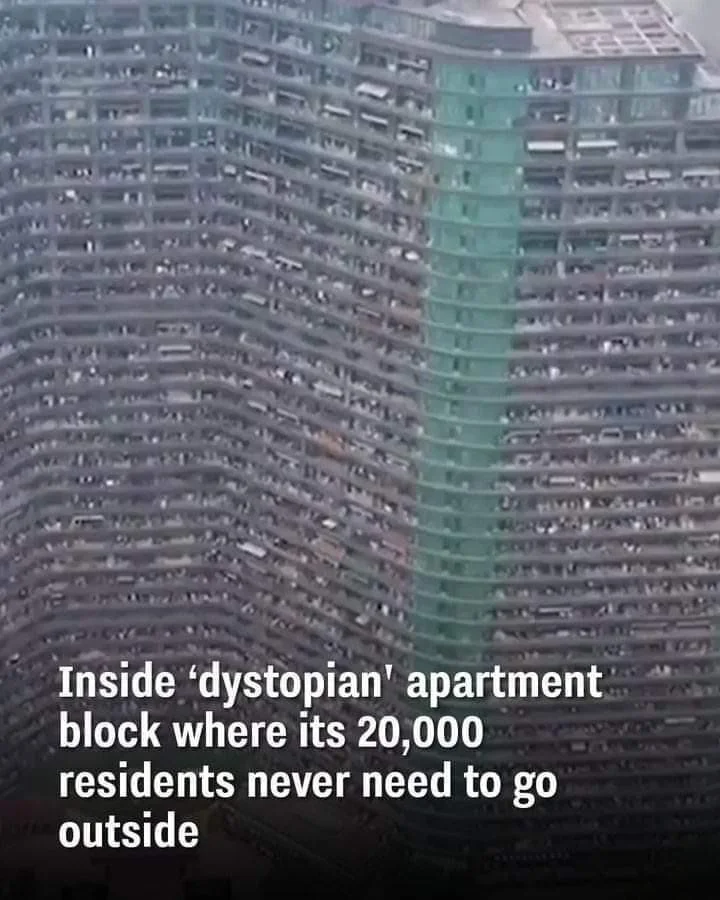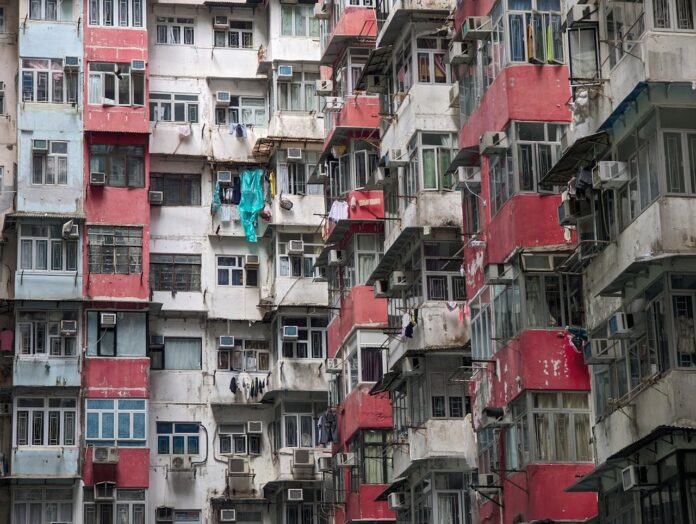Imagine living in a building so massive that it houses an entire small city—complete with restaurants, grocery stores, and even internet cafés. Sounds like something from a dystopian novel, right? But this is no fiction. A viral TikTok video has brought global attention to Regent International, a colossal apartment complex in Hangzhou, China, often dubbed the “Dystopian Apartment.”
The video, shared by TikTok user @fatheristheone, uses stunning drone footage to capture the enormity of this structure. With its unique S-shape design and the capacity to accommodate up to 30,000 residents, the building has left viewers worldwide in awe.

A Marvel of Modern Architecture
Designed by Alicia Loo—the visionary architect behind the iconic Singapore Sands Hotel—Regent International was completed in 2013. Standing at an impressive 675 feet tall, the building stretches across 36 to 39 floors and is home to around 20,000 people. Its futuristic design and staggering density have drawn comparisons to the dystopian worlds we usually read about in books.
A City Within Four Walls
Living in Regent International is like having the world at your doorstep. The complex boasts a wide array of amenities: restaurants, nail salons, pools, grocery stores—you name it. Residents can go weeks without stepping outside. While this convenience is a major perk, it’s also what fuels its “dystopian” reputation.

Yet, the reality for many residents is far from bleak. Young professionals, students, and influencers make up much of the population, drawn by affordable rent ranging from $200 to $600 per month. For these city dwellers, Regent International offers both cost-effectiveness and unmatched convenience.
A Solution to Housing Challenges—or a Red Flag?
As cities around the world grapple with housing shortages, buildings like Regent International could provide an answer. With minimal land use and maximum housing capacity, it’s an efficient way to address urban density. Similar experiments, like the all-in-one building in Whittier, Alaska, show that this concept isn’t limited to China.
However, not everyone is convinced. Critics argue that high-density living comes with its own challenges—lack of personal space, limited fresh air, and reduced outdoor activities. These issues are particularly concerning in cultures where privacy and outdoor space are deeply valued.
Would You Live Here?
Whether you view Regent International as a marvel of efficiency or a cautionary tale, there’s no denying it’s a glimpse into the future of urban living. Could you see yourself trading a backyard for balcony views and all-in-one convenience?

Tell us what you think in the comments—and don’t forget to share this story with friends who’d love (or hate) to live here!




